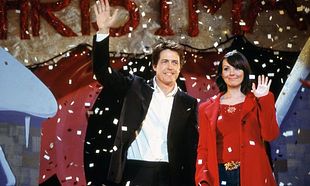Danzig, Germany, 1924. Oskar Matzerath is born with an intellect beyond his infancy. As he witnesses the hypocrisy of adulthood and the irresponsibility of society, Oskar rejects both and, at his third birthday, refuses to grow older. Caught in a baffling state of perpetual childhood, Oskar lashes out at all he surveys with piercing screams and frantic poundings on his tin drum, while the unheeding, chaotic world marches onward to the madness and folly of World War II.
Honoured with the Palme d’Or at the 1979 Cannes Film Festival and the 1979 Academy Award for Best Foreign Language film, Volker Schlöndorff’s The Tin Drum is a truly visionary adaptation of Nobel laureate Günter Grass’s acclaimed novel, an unforgettable fantasia of surreal imagery, striking eroticism and unflinching satire.
Screenwriter Jean-Claude Carrière observes, “It is, first of all, a realistic film, deeply rooted in the Danzig lower middle-class, with its pettiness, its fears and, at times, with a certain grandeur. It is also a fantastic, barbarous film, in which shafts of black light suddenly pierce the suburban streets and the daily round. And it is the story of Oskar, the incredible drummer who beats out his anger, who shouts his existence and who has decided to remain small among ‘the giants.’”
Presented in cooperation with The Goethe-institut Irland







































































